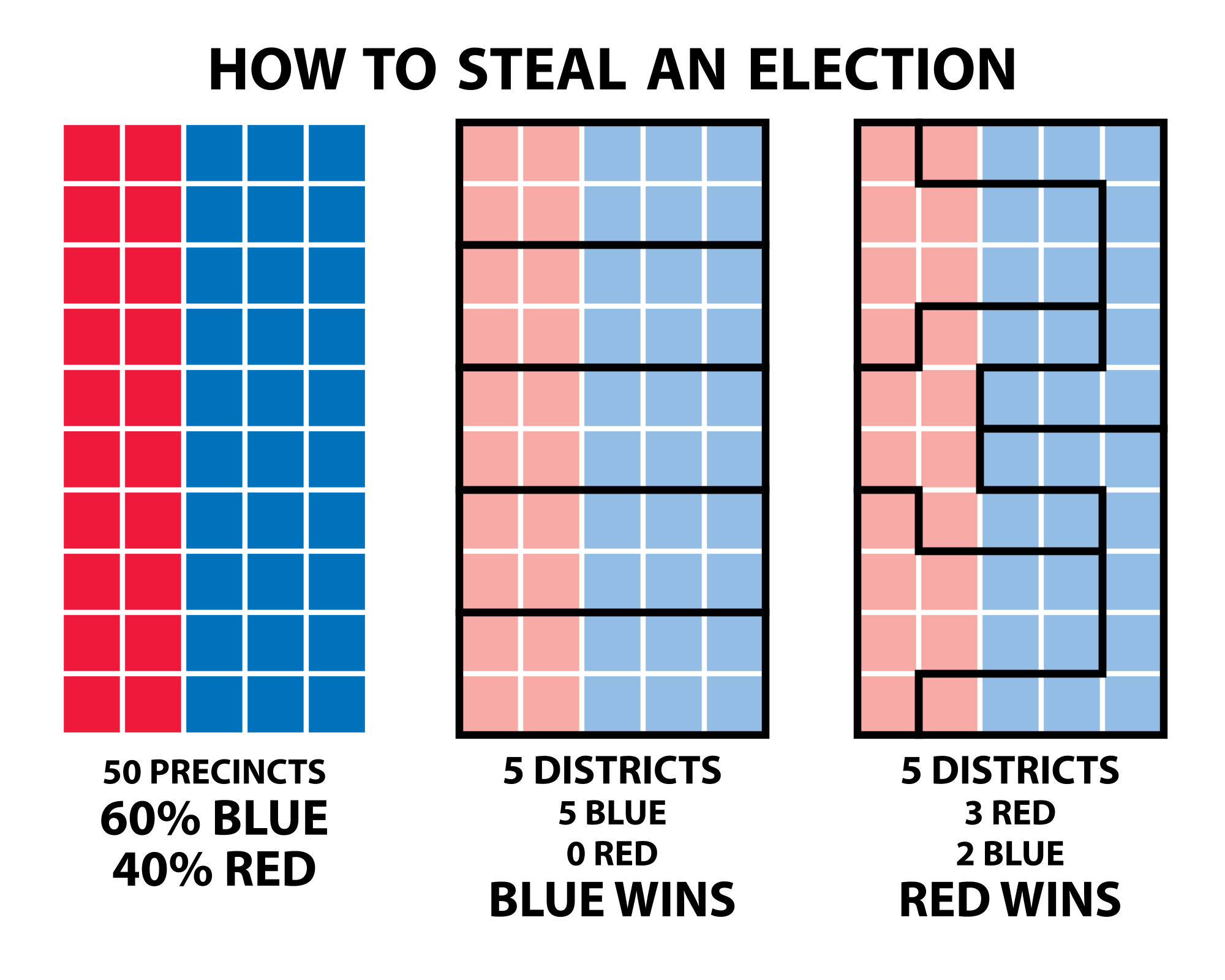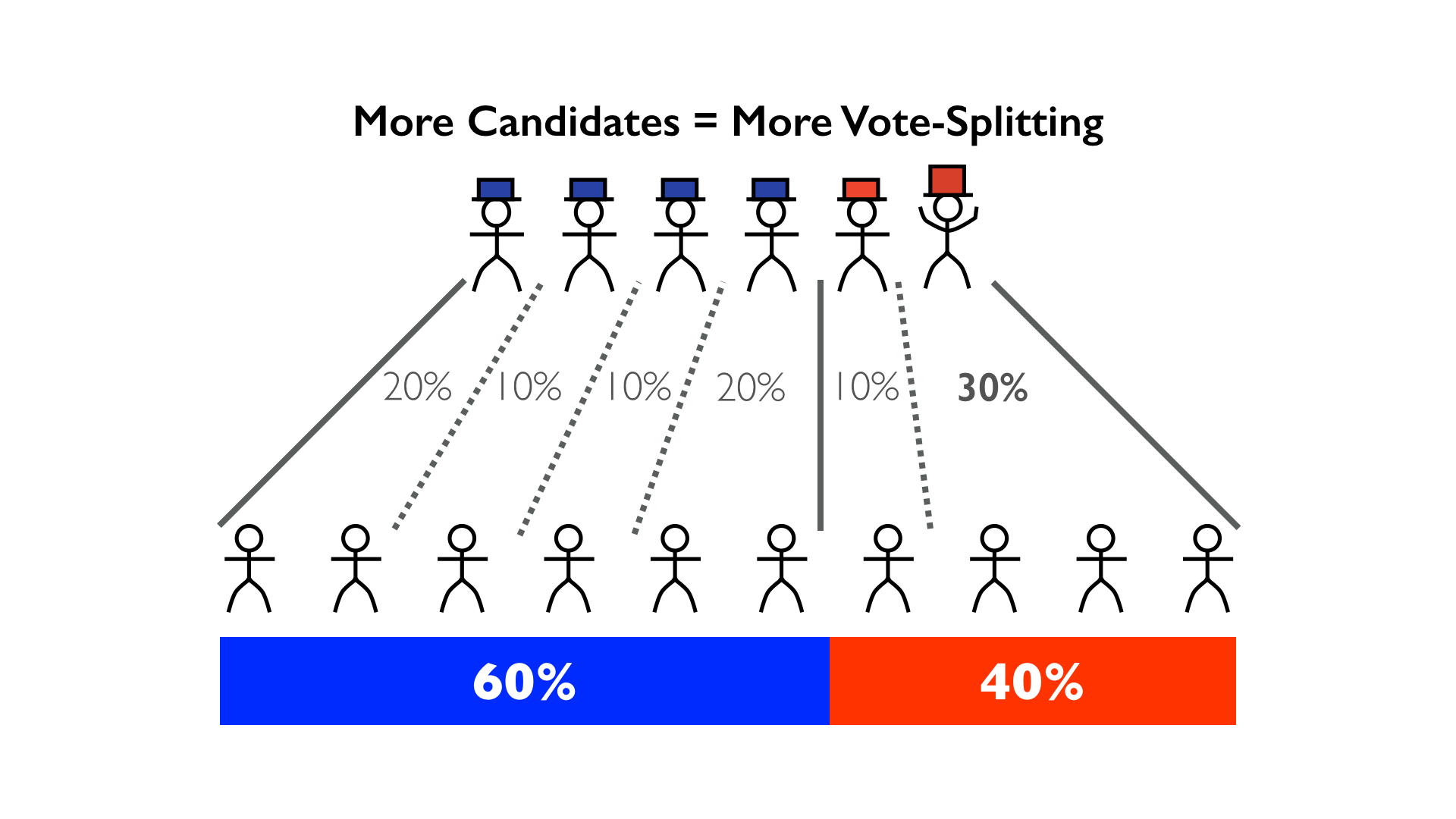Why I don’t Respect The US Elections
Last week, the United States held their bi-annual midterm elections to congress – which typically occur between presidential races (every 4 years). Each of the 435 individuals from the House of Representatives are up for election whilst only a third of the Senate are. So, members of the House serve only 2 year terms whilst Senators serve 6 year terms. During the midterm elections, a party requires 51 seats in order to control the Senate and 218 are required for the House. There are a number of issues with the US voting system. However, there are two big issues exclusive to the midterm elections – gerrymandering and the spoiler effect.
What is gerrymandering?
The act of gerrymandering is to manipulate/control the boundaries of electoral districts in order to give one party an unfair advantage over its rivals. This is used to weaken political enemies as well as protect incumbents – a common practice under plurality voting systems. During the 2016 midterm elections, many congressional seats won at the national and state levels were caused by some degree of gerrymandering by both Republicans and Democrats. One of the most famous examples concern District 1 and District 12 in North Carolina, where racial lines were unconstitutionally drawn to increase the populations of African American majorities.

Why ‘trusted’ political representatives even hold the power to draw boundary lines for their own political advantage is beyond any sort of sound reasoning. The US political system prides itself in checks and balances and the separation of powers between the executive, legislature and judiciary – yet the legislature holds the right to manipulate boundaries to increase chances of re-election. Although the Supreme Court has and can declare some instances of gerrymandering to be unconstitutional (as was the case with the two districts in North Carolina) it is difficult to understand why gerrymandering isn’t declared unconstitutional altogether. This manipulation of electoral results is likely to make anyone constituent feel uncomfortable.
What is the spoiler effect?
The US elections are prone to the spoiler effect. A spoiler is a non-winning candidate whose presence on the ballot affects which candidate wins, essentially a political candidate. In other words, they exist on the ballot simply to mess up the results.
This causes the “winner” of an election to be the candidate whom the majority of voters liked least. Such was the case in 2016, in the New Hampshire Senate midterm elections, “conservative independent candidate Aaron Day won about 18,000 votes. Given his political leanings, it is likely that the vast majority of his voters otherwise would have voted for incumbent Senator Kelly Ayotte, who lost to Governor Maggie Hassan by about 1,000 votes, thus costing Ayotte reelection”.
This characteristic of plurality elections leads to a bigger issues. With the end goal to keep the spoiler impact from adversely affecting their odds, political parties will confine the quantity of competitors running. This then leaves voters with no viable decision as races frequently include voters only endorsing the competitor picked by the majority party in their region.

Philip Bump for the Washington Post found that “1.5% of general election races in the U.S. from 2006 to 2012 were spoiled by third-party candidates”.
Though this is an almost non-existent amount, the very fact that this is even a tactic that exists, permits the co-existence of voter insecurity.
I stand by the fact that no existing voting system is perfect, even the First-Past-The-Post voting system in the UK leads to the existence of safe seats and thus results in a number of wasted votes – however, the manipulation of electoral results in the UK is rare – and far too widely used or even considered in the United States. Abolition of gerrymandering is necessary, as for the spoiler effect, there is no legal grounds to oppose adding a “non winning candidate” to a ballot – it’s just an unfortunate loophole in the US electoral system.


